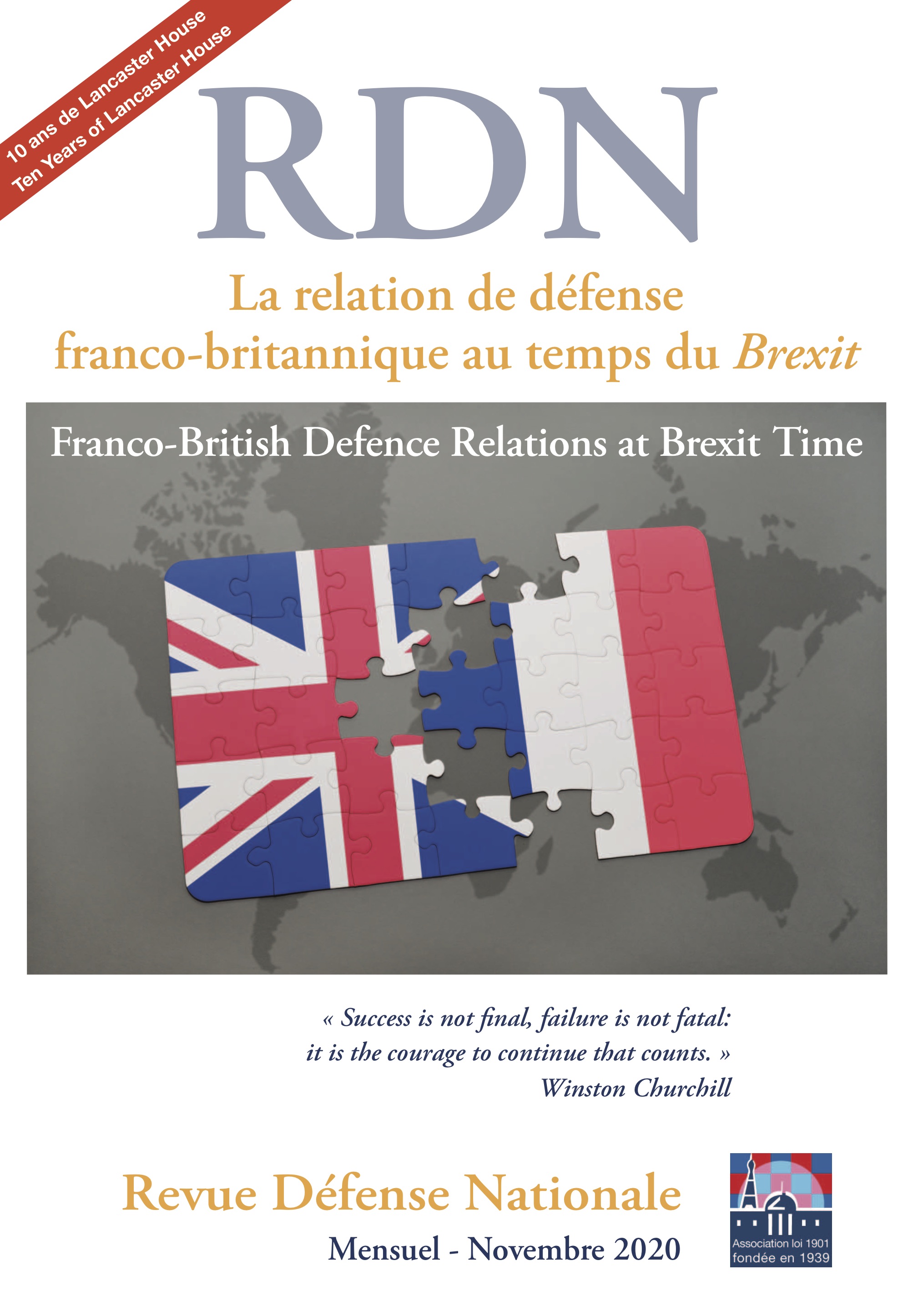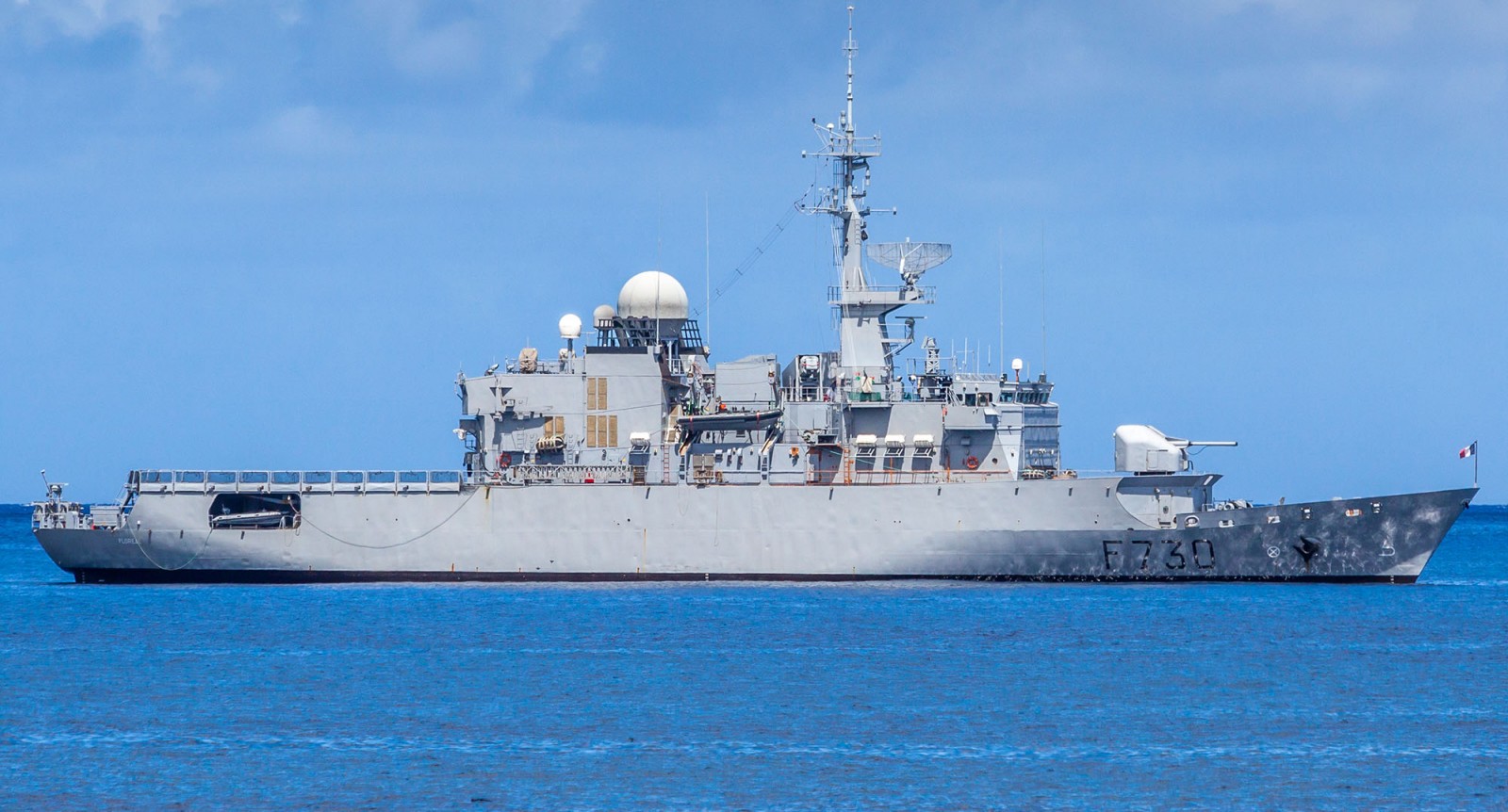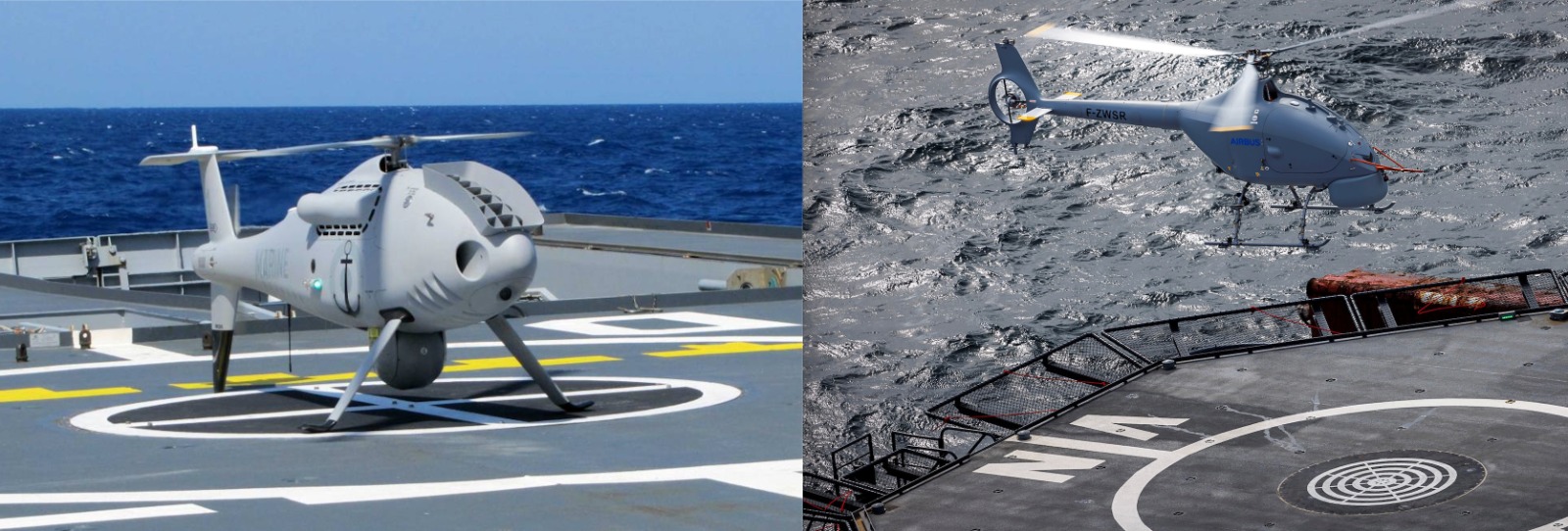Edition anglaise

November 2020 - n° 834
Franco-British Defence Relations at Brexit Time
« Succes is not final, failure is not fatal: it is the courage to continue that counts. »
Winston Churchill
Franco-British Defence Relations at Brexit Time
Points of View on Franco-British Defence Relations - Edward Llewellyn, Catherine Colonna
Franco-British defence relations are long-standing and sound, and merit reinforcing for the longer term in view of the degree to which the two countries hold common strategic interests. Military cooperation has not ceased growing since the Entente cordiale, and indeed has been strengthened by the storms that we have had to, and will continue to ride out together.
From Liberation to Lancaster House: 65 Years of Flirting and Fiasco - Georges-Henri Soutou
Franco-British relations are age-old, deep and complex, with alternating closeness and distance. Attempts at rapprochement are legion and have often failed, and political cultures remain very different with London turning to Washington and Paris to Berlin. For all that, there is an urgent need to find convergences, particularly on defence matters.
Tenth Anniversary of the Lancaster House Treaties, 2 November 2020 - Alice Guitton
Ten years after their signature, the Lancaster House Treaties are an essential asset to the Franco-British relationship. This solid and productive relationship needs now to be developed further and to open up new perspectives, with concrete projects in order to respond to future security challenges.
The Combined Joint Expeditionary Force (CJEF): Operational Force and Vector for Franco-British Common Ambitions - Frédéric-Yves Gagnon
The Franco-British Combined Joint Expeditionary Force (CJEF) is now operational after several phases of construction. Interoperability is central to its function and covers a great number of aspects. This tool must nevertheless not be left to fossilise and must continue to mature, particularly in the fields of logistics and command chains.
CJEF: Construction of the Land Component of a Franco-British Expeditionary Force - Alastair Veitch, Yann Gravêthe
The construction of the land component of the CJEF that stemmed from the Lancaster House Treaties has been founded on technical and procedural, and especially human interoperability to guarantee its long-term operational success. The challenge now is to maintain this common culture and enrich it in order to be able to respond to the demands of the future.
The Franco-British Industrial Relationship at Brexit - Jean-Pierre Maulny
The Franco-British industrial relationship has seen a number of genuine successes, particularly in the field of missiles with MBDA, but also some bitter failures despite all political promises. Moreover, Brexit may well lead to longer-term, significant and highly undesirable consequences. It would be to the interest of the FCAS and Tempest projects to find some convergence even if they cannot actually merge.
Beyond Brexit: a Necessary Re-launch of Cooperation - Alice Pannier
The tenth anniversary of the Lancaster House Treaties highlights the crying need to inject new life into bilateral cooperation that is currently running out of steam through bad dynamics. Brexit serves only to accentuate the difficulties, hence the need for a political re-launch that has clear support on both sides of the Channel.
Breaking the Strategic Impasse: Franco-British Cooperation on European Defence - Alice Billon-Galland, Hans Kundnani
The signature of the Treaties in 2010 followed in the wake of the 2008 financial crisis, which compelled the two countries to reduce their strategic ambitions. Whilst today the countries clearly share an analysis of what is at stake, the policies followed by London and Paris are somewhat divergent. Nevertheless, there is a need for mutual commitment. This will be one of the post-Brexit challenges.
MBDA and the Missile Industry at the Heart of the Defence Partnership between France and the United Kingdom - Éric Béranger
Consolidation of defence industry could be based on the model of MBDA, the Franco-British missile group, which has been able to unite both political and industrial visions. The aim is to develop a long-lasting and competitive industry that responds to needs and secures our independence.
The Royal Navy Faces the Budgetary Effects of Brexit and Covid-19 - Éric Lambert
Brexit and the pandemic have already had a significant impact on the defence policy of the United Kingdom. The forthcoming 2021 strategic review will need to define priorities, and from them make some major choices between two different approaches. The stakes for the Royal Navy are considerable.
Future Imperfect - Andy Corbett
Both countries are nuclear powers yet their approaches to the concept of deterrence are not strictly identical, even though there are many areas of convergence between them. In addition, the subject appears little in British strategic debate. There would be much to be gained from intensifying discussions, and from bringing our European partners into them.
The Future of Combat Air Systems, a Shared Stake for France and the United Kingdom - Renaud Bellais
Future Combat Air Systems are a major stake for the coming decades, and yet the United Kingdom and France have committed to competing projects. Developments in Industry 4.0 could nevertheless offer much needed and relevant convergences to preserve European independence.







